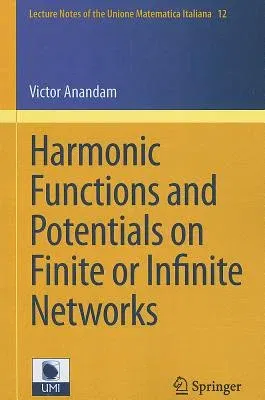Victor Anandam
(Author)Harmonic Functions and Potentials on Finite or Infinite NetworksPaperback, 29 June 2011

Qty
1
Turbo
Ships in 2 - 3 days
In Stock
Free Delivery
Cash on Delivery
15 Days
Free Returns
Secure Checkout
Part of Series
Lecture Notes Of The Unione Matematica Italiana
Print Length
141 pages
Language
English
Publisher
Springer
Date Published
29 Jun 2011
ISBN-10
3642213987
ISBN-13
9783642213984
Description
Product Details
Author:
Book Format:
Paperback
Country of Origin:
NL
Date Published:
29 June 2011
Dimensions:
22.61 x
15.49 x
1.02 cm
ISBN-10:
3642213987
ISBN-13:
9783642213984
Language:
English
Location:
Berlin, Heidelberg
Pages:
141
Publisher:
Weight:
226.8 gm

